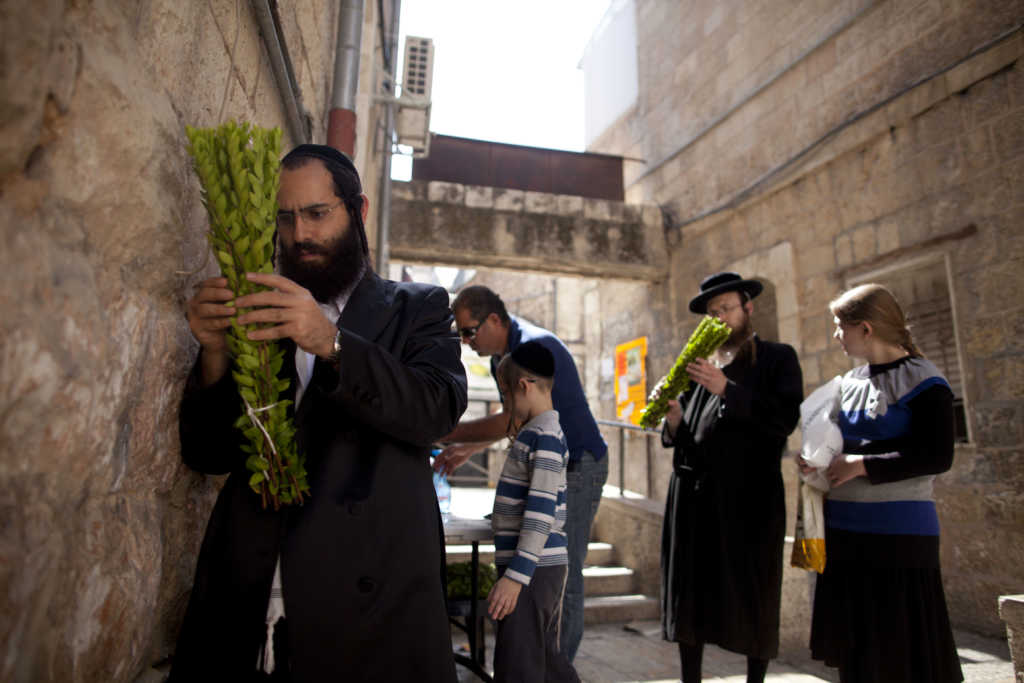The eight-day Feast of Sukkot is highlighted by God’s command to build booths – temporary structures – and live in them for seven days.
The booths of Sukkot are intended to remind us of God’s provision for the Israelites, who lived in tents in the wilderness for 40 years. God protected them, provided for their needs and supplied food each morning. He made water spring from rocks, and the Bible tells us He supernaturally prevented their clothes and sandals from wearing out throughout those four decades.
Traditional Sukkot:
The Feast begins and ends with a Sabbath. The first day includes a Sabbath rest as well as a sacred assembly where a lulav (LOO-lahv) – essentially a bundle of specific branches – is waved before the Lord. The lulav celebration was derived from Leviticus 23:40, where God instructed Israel to take these branches “and rejoice before the Lord.”
Sukkot Today:
Messianic Jews and other Jewish people around the world celebrate this Feast by building a sukkah (SOUH-kah) in the backyard, or on a patio or balcony if they live in an apartment or condominium. Many will have a family gathering in the booth or take one or more meals there. More orthodox or traditional Jewish people generally live and sleep in the sukkah.
Purpose of Sukkot:
Living in a sukkah (SUH-kah) for seven days each year offers a vivid reminder of how God continues to care for us today.
Origin of the Name:
Sukkot is actually a feast of many names. Sukkot (soo-KOTE) is the Hebrew word for “booths,” also referred to as “tabernacles.” Therefore, the festival is also called The Feast of Booths and the Feast of Tabernacles. Sukkot is also sometimes called the Feast of Ingathering, because it is celebrated following the last harvest before winter.
What’s Unique about Sukkot?
The Feast of Sukkot is the only biblical festival in which God commands Israel to rejoice (Leviticus 23:40).
How is Sukkot Relevant to Christians?
The Feast specifically celebrates God’s Presence with Israel.
He was with them when they wandered in the wilderness, present in the pillars of cloud by day and fire by night. His presence dwelled in the Tabernacle. Moses prayed, “If Your presence does not go with us, do not send us up from here” (Exodus 33:15).
Reflecting on Israel’s years in the Sinai desert can remind us how important God’s presence was to them.
But we, as Christians, also know that when we put our faith in Jesus – Yeshua in Hebrew – God sends His Spirit to dwell within us (1 Corinthians 3:16). So we, too, can rejoice in God’s presence at Sukkot.
Just as life was transient for the Israelites, it is for us today. They learned to watch God’s presence in the cloud and pillar of fire and to move only when He moved. Our life is equally transient in many ways today, and it’s worthwhile for us as Believers to also learn to look to him for direction in all things.
Each of the biblical Feasts of the Lord foreshadow God’s redemptive plan for mankind. Sukkot looks ahead to Yeshua’s Second Coming, when He will dwell with Believers in His eternal Kingdom. Furthermore, the Scriptures tell us that all Nations will celebrate Sukkot in the future Messianic age:
Then all the survivors from all the nations that attacked Jerusalem will go up from year to year to worship the King, Adonai-Tzva’ot, and to celebrate Sukkot. (Jeremiah 14:16 TLV).
–
Jonathan Bernis is the president and CEO of Jewish Voice Ministries International, a worldwide Messianic Jewish ministry which works to transform lives and see all Israel saved through humanitarian medical outreaches, large-scale international festivals, congregation planting and leadership training, television, print media, digital channels, and speaking engagements.


